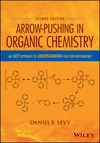Students preparing to enter the workforce have a great many questions. Some of these relate generally to career paths while others relate more specifically to various professions. In my last two posts, I focused on career paths. I hope the answers I provided are helpful and look forward to reading your comments.
At January's CSU Biotechnology Symposium, I had the opportunity to listen to both questions and concerns of soon-to-be graduates from life science programs. Those participating at my table (medicinal chemistry) provided me with a forum to address qustions specific to my area of expertise. These questions, related to medicinal chemistry, are:
- What is medicinal chemistry?
- Do medicinal chemists participate in the testing of compounds?
- What is a typical day like for a medicinal chemist?
- How does molecular modeling influence medicinal chemistry?
- How does natural product research relate to medicinal chemistry?
- How can natural products be matched to enzyme activity?
- What is the impact of small protein design?
- What are the advantages/disadvantages of biologics vs small molecule drugs?
In this and the following posts, I will address all of these questions.
What is medicinal chemistry?
Medicinal chemistry is the discipline focused on the discovery of new medications.
Many medications are derived from natural sources such as plants, sponges and animal toxins/venoms. Specific examples include aspirin, morphine and cocaine. However, while nature provides many biologically important molecules, these molecules are the result of evolutionary pressure upon the organisms from which they are isolated. As such, they are not necessarily optimal for use in humans. In order to make use of such naturally occurring compounds, medicinal chemists work to modify these structures in order to enhance desirable properties and minimize toxic side effects.
Complementary to naturally occurring compounds are the vast libraries of chemicals available for biological screening. These compounds are generally man-made and provide equally enticing structures as lead molecules for drug discovery programs.
Because medicinal chemistry involves the systematic modification of natural or man-made organic molecules, a background in organic chemistry is essential to the medicinal chemist.
Do medicinal chemists participate in the testing of compounds?
Medicinal chemistry is only one component essential to the drug discovery process. Another aspect of this process involves the testing of the compounds that are produced by medicinal chemists. The biological assays generally include enzyme assays, cell-based assays and biologically relevant animal models of diseases. These studies are generally designed and carried out by biologists and pharmacologists.
Medicinal chemists do not carry out biological assays. However, the feedback generated by biologists and pharmacologists is essential to helping medicinal chemists design their next modifications to lead molecules. Thus by correlating the structures of related compounds to their respective biological data, medicinal chemists can determine if they are moving towards or away from improved drug candidates.
Although medicinal chemists do not generally participate in compound screening, it is not unheard of. Early in my career, I was curious as to whether a class of matrix metalloproteinase inhibitors (MMPI)s would act as inhibitors of endothelin converting enzyme (ECE). At the time, there was no enzyme assay available for ECE. However, there was an way to measure ECE activity in rats by measuring their blood pressure in response to dosages of big endothelin (big-ET) in the presence or absence of an MMPI. With this knowledge, a colleague of mine in the pharmacology department taught me how to surgically cannulate rat carotid arteries and, together, we were able to demonstrate that MMPIs could inhibit ECE. This was the only time in my career that I actually participated in biological assays and it taught me a great deal about the role and importance of pharmacologists to the drug discovery process.
What is a typical day like for a medicinal chemist?
Medicinal chemists typically spend their days making target molecules for biological testing. Approximately 70% of their time is spent initiating reactions, completing reactions and isolating/purifying products. The remaining 30% may be spent generating analytical data (NMR, HPLC, MS) for isolated compounds, reviewing biological data provided by biologists, searching scientific literature for information/procedures needed for chemical transformations, and attending group meetings.
The role of a medicinal chemist is highly intertwined with related operational groups such as biology, pharmacology, formulations and process chemistry. The medicinal chemist must be able to effectively communicate with all of these disciplines in order to share necessary information and glean important insight valuable to program advancement. Each day is different from the last and each day begins with the hope of new discoveries.





Compared with the glass reactor with jacket, the high quality stone crusher has wide applications. Here: www.toption-china.com/products/glass-reactor-with-jacket-10l. Generally speaking, the stone crusher machine may include vibrating feeder, stone jaw crusher, pex jaw crusher, vertical shaft impact crusher, vibrating screen, sand washing machine etc.
ReplyDeleteSuch type of defense from rats and other pests is very important for the sensitive people looking for the opportunity to struggle with them using Everpest Pest Repellers, for instance. As one of the efficient ways to work with the pests. I hope, there will be more and more devices for the different pests.
ReplyDelete